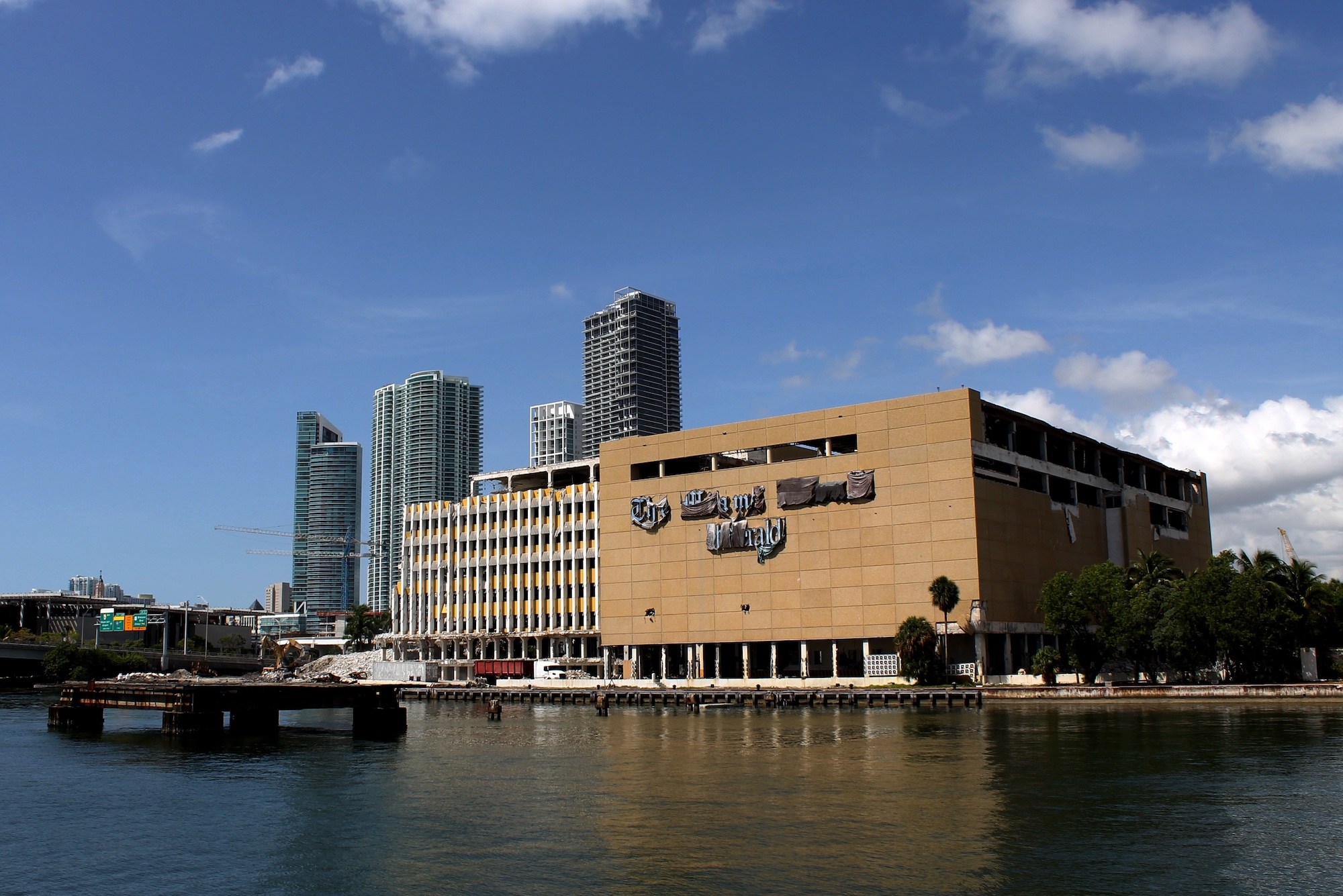
Six months ago, there were five large American newspaper chains: Gannett, New Media’s GateHouse, McClatchy, Tribune Publishing, and Alden’s MNG Enterprises. (Apologies to Lee Enterprises, which would be No. 6 — the cut has to land somewhere.)
Today, there are four, after GateHouse bought Gannett and took its name last fall. And the chances just went up that, by mid-summer, there will be only two remaining.
The Consolidation Games, as our own Ken Doctor memorably named this collective urge to merge, may be accelerating to sometime resembling…a conclusion?
Here’s the context: Every local newspaper company is in trouble. They were all in some degree of trouble before COVID-19 landed in the United States — some a little healthier, some a little more burdened by debt, but all of them facing the same secular decline in print and only spotty success in digital. But coronavirus — by shutting down millions of the local businesses newspapers rely on for advertising — has pushed the pedal to the floorboard and made the logic of further consolidation inescapable.
The still-freshly-merged Gannett has seen its stock price drop from $6.36 on its corporate birthday in November to just 88 cents this morning. McClatchy went into bankruptcy in February to try to scale back its enormous debt burden — a process that has had a few more bumps than some expected. Ken reported last month that insiders expect Tribune and MNG to merge by the end of June, with Tribune likely being the nominal acquirer. (That likelihood has kept TPUB relatively afloat among newspaper stocks.)That would have left the chains looking like this: Gannett+GateHouse the biggest game in town, Tribune+MNG a newly scaled (but still relatively distant) No. 2.
What was less clear is where it left McClatchy.
Expectations had been that its bankruptcy process would leave McClatchy — currently still controlled by its namesake family after more than a century — in the hands of its biggest debtholder, the hedge fund Chatham Asset Management. What Chatham would do with its new property, though, wasn’t crystal clear. Would it follow Alden’s model with MNG — cut costs to the bone to hit an outsized profit level and ride the free cash flow into the ground? Or would it try to quickly flip it into a merger with one of the new Big 2?
That brings us to the latest development, ably reported by McClatchy’s own Kevin G. Hall:
McClatchy’s largest creditors offered to buy the bankrupt media company Thursday, a move that, if approved, would kick off an auction among parties interested in owning the nation’s second largest local media company.
The court filing comes as the coronavirus crisis has wrecked the global economy, endangering the future of McClatchy and other media companies. McClatchy and its creditors have also watched as legal fees have quickly piled up in the bankruptcy case filed in February…
The filing by creditors Chatham Asset Management and Brigade Capital Management set a sale price “well in excess” of $300 million and a deadline of no later than early July. McClatchy, which filed Chapter 11 bankruptcy in February, began seeking potential buyers earlier this month and more than 20 parties are “engaged in our process,” said Craig Forman, McClatchy’s president and chief executive officer.
The key element there is the auction — which would give any party the opportunity to outbid Chatham. In other words, one of the hedge funds or private equity firms that have been toying around with the newspaper business in recent years — Gannett’s manager Fortress Investment Group, Gannett’s chief lender Apollo Global Management, or even the industry’s cartoon villain Alden Global Capital — could win McClatchy directly at auction, rather than letting it move to Chatham and then attempt a move from there.
There’s still lots about this that’s unclear; most obviously, Chatham’s position as McClatchy’s chief lender will give it significant sway in how this process evolves. But the fact that Chatham itself started this process could well be a sign that it’d like to skip over that running-McClatchy-on-its-own stage, too, and go straight into a merger.
The short- to medium-term outlook for the local newspaper business has gotten so much worse in the past month that even the industry’s most skillful strip-miners will struggle to draw much cash flow out of them anytime soon. (Since filing for bankruptcy, McClatchy has likely spent more in legal fees than it has generated in net revenue.) And while COVID-19 will eventually pass and local businesses return to something like “normal,” who knows if that’ll come in two months or ten? And who knows if those few remaining print advertisers will feel like coming back?
The growing control that hedge funds and private equity have over local news has, for all its negatives, had one distinctly clarifying benefit: We know that the only interest in play here is the desire for money. And all of these financial players have presented approximately zero plans on how to generate money beyond cutting and consolidating. It’s been the logic behind every move in the industry for the past year-plus, and the coronavirus shock has only hardened it.
In that scenario, an independent, free-standing McClatchy just doesn’t make any sense. It may make sense journalistically, it may make sense for the communities it serves, but it doesn’t make sense financially. I’ll be surprised if, by the end of summer, those five newspaper chains haven’t been — as Ken foretold — cut down to two.